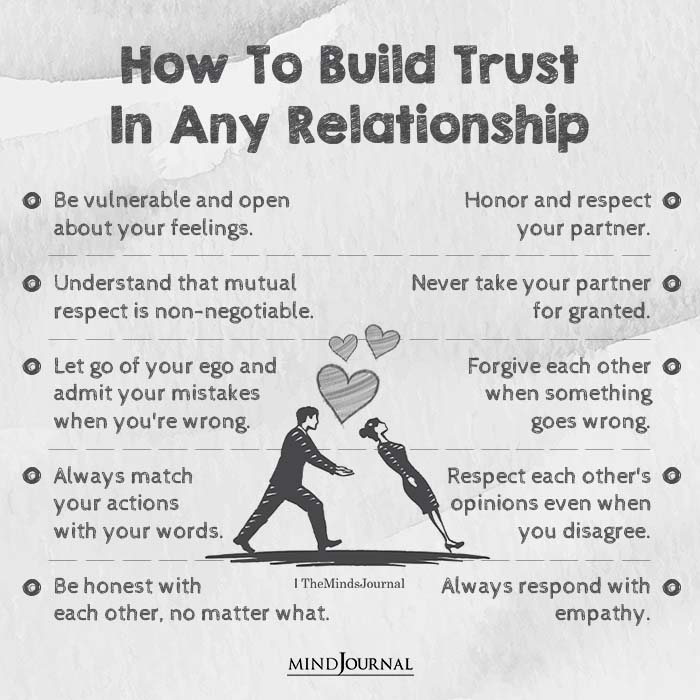The Power of Trust: Building Strong Connections at Interpersonal and Organizational Levels
Trust serves as the bedrock for human relationships, enabling the development of bonds built on cooperation, empathy, and reliability. In both personal and professional realms, trust plays a vital role in fostering connections and facilitating harmonious interactions. Defining trust as a multidimensional concept, encompassing both cognitive and affective components, scholars have delved into its nuances to understand its significance and impact.
Predictability refers to the perception that an individual's behavior will remain consistent and reliable in similar circumstances. When people can reasonably anticipate how someone will act or respond in a given situation, it instills a sense of trust. For example, if a friend consistently shows up on time for planned activities, it creates a sense of predictability, reinforcing trust in their reliability.
Dependability encompasses the notion that individuals can be counted on to fulfill their commitments and obligations. When people consistently follow through on their promises, meet deadlines, and honor their responsibilities, it builds trust. Dependable individuals are seen as reliable partners, colleagues, or friends, fostering a sense of assurance and reliability in their actions.
Integrity plays a vital role in trust formation. It refers to the perception that individuals possess strong ethical values and consistently act in accordance with those principles. When someone consistently demonstrates honesty, fairness, and ethical conduct, it enhances their trustworthiness. Integrity creates a belief that individuals will act in the best interests of others and uphold shared values, reinforcing trust in their character.
These perceptions shape expectations and influence individuals' willingness to be vulnerable and rely on others. Trust emerges as individuals accumulate evidence and experiences that confirm the consistency and credibility of others' actions.
It is important to note that the perception of predictability, dependability, and integrity may vary across different contexts and relationships. Trust can be influenced by factors such as previous experiences, cultural norms, and individual differences. Understanding these nuances helps us appreciate the complexities of trust and its impact on our interactions with others.
Trust has been categorized into various types based on different dimensions and contexts. While the specific categorization may vary across studies, here are some commonly discussed types of trust.
Personal Trust: Within personal relationships, trust takes on a more intimate and emotional dimension. Based on the work of Rempel, Holmes, and Zanna (1985), personal trust refers to the reliance individuals place in others' fidelity, loyalty, and genuine care. It forms the foundation for friendships, romantic partnerships, and family relationships, nurturing emotional closeness and vulnerability.
Interpersonal Trust: Interpersonal trust focuses on trust between individuals within a social or professional context. It involves confidence in others' reliability, competence, and ethical behavior. Interpersonal trust is crucial for effective collaboration, cooperation, and the development of harmonious relationships.
Organizational Trust: Organizational trust pertains to the level of trust individuals have in their organization as a whole. It involves confidence in the organization's values, leadership, and decision-making processes. Trust between coworkers, supervisors, and subordinates encourages collaboration, effective teamwork, and shared goals (Dirks & Ferrin, 2002). Furthermore, trust contributes to job satisfaction, organizational commitment, and overall performance (McAllister, 1995).
Institutional Trust: Institutional trust refers to trust in formal institutions, such as government bodies, legal systems, or societal structures. It involves confidence in the integrity, fairness, and effectiveness of these institutions. Institutional trust plays a significant role in societal cohesion, legitimacy, and social order.
Distributed Trust: Distributed trust refers to the trust individuals place in decentralized systems or networks, often facilitated by technology. Examples include trust in online platforms, peer-to-peer networks, or blockchain-based systems. Distributed trust relies on algorithms, protocols, and consensus mechanisms to establish trust without relying solely on central authorities.
Domain-Specific Trust: Domain-specific trust focuses on trust within specific domains or contexts, such as trust in healthcare professionals, financial institutions, or technology companies. It reflects confidence in the expertise, reliability, and ethical conduct of individuals or entities within a particular field.
Generalized Trust: Generalized trust refers to a broader, generalized belief in the trustworthiness of others in society. It is characterized by a willingness to trust unfamiliar individuals based on general perceptions of societal norms and the belief that most people can be trusted.
It is important to note that these types of trust are not mutually exclusive and often interact with each other. Trust can also vary in degrees, ranging from high to low levels of trust, depending on the specific relationship, situation, or context.
Building Trust
Integrity and Reliability
Open Communication
Effective and open communication is essential for building trust. According to Kramer (1999), open communication helps clarify expectations, resolves conflicts, and reduces ambiguity, leading to increased trust. Creating an environment where individuals feel comfortable sharing their thoughts and concerns fosters trust by demonstrating respect, build rapport and fostering understanding.

Research by Dirks and Ferrin (2002) highlights the role of communication in trust-building, emphasizing the importance of information sharing, listening, and feedback. They argue that communication acts as a social bonding agent, enhancing trust in interpersonal relationships. Frequent and meaningful interactions contribute to the development of trust, while effective communication channels foster trust in interpersonal relationships. Furthermore, Lewicki and Bunker (1996) emphasize the significance of repeated positive interactions and the role of reciprocity in building trust.
Building trust at both interpersonal and organizational levels is crucial for fostering healthy relationships and creating a positive work environment. Here are some effective ways to build trust at these levels.
Building Trust at the Interpersonal Level
Communication and Active Listening: Open and honest communication is essential for building trust. Encourage open dialogue, active listening, and respect for others' perspectives. Demonstrate empathy and understanding, which helps individuals feel heard and valued.
Consistency and Reliability: Consistently follow through on your commitments and promises. Being reliable and dependable establishes a sense of trustworthiness. Avoid making false promises or overcommitting, as it can erode trust.
Demonstrate Competence: Showcase your competence and expertise in your area of work or expertise. Be knowledgeable, stay updated, and demonstrate your skills and abilities. Competence builds confidence and trust in your abilities.
Transparency and Honesty: Be transparent in your communication and actions. Share information openly and honestly, especially when it concerns important decisions or changes. Avoid withholding information or being deceptive, as it can damage trust.
Respect and Support: Treat others with respect, empathy, and kindness. Show genuine concern for their well-being and offer support when needed. Building a supportive environment fosters trust and creates a sense of belonging.
Empowerment and Autonomy: Provide employees with opportunities for autonomy and decision-making. Empowering employees to take ownership of their work and providing a supportive environment where their contributions are valued builds trust and engagement.
Consistent Recognition and Feedback: Recognize and appreciate employees' efforts and achievements. Provide regular feedback to help individuals grow and develop. Constructive feedback and recognition demonstrate trust and show that employees' contributions are valued.
Consistency in Policies and Procedures: Ensure that organizational policies and procedures are consistent, fair, and transparent. When employees perceive fairness and consistency in how they are treated, it enhances trust in the organization's systems and processes.
Investment in Development and Well-being: Invest in employee development and well-being. Offer opportunities for learning and growth, promote work-life balance, and provide resources for physical and mental well-being. Demonstrating care for employees' holistic needs builds trust and loyalty.
By implementing these strategies, both at the interpersonal and organizational level, trust can be nurtured and strengthened. Building trust takes time and consistent effort, but it creates a positive environment where individuals feel valued, engaged, and motivated to contribute their best.
Case Example: Building Trust through Leading by Example
In a multinational technology company, Sarah, the CEO, recognized the importance of trust in creating a positive work environment and driving organizational success. She believed that trust should start from the top and be demonstrated through her actions as a leader.
Sarah consistently displayed integrity and ethical behavior in her interactions with employees and stakeholders. She led by example by always following through on her commitments and keeping her promises. For instance, when a major project deadline was approaching, Sarah personally worked alongside the team, putting in extra effort to meet the deadline. Her commitment and reliability created a sense of trust among employees, who saw her as someone they could depend on.
Transparency was another key element in Sarah's leadership style. She made a conscious effort to communicate openly and honestly with employees, sharing information about the company's goals, challenges, and important decisions. When difficult decisions had to be made, Sarah explained the rationale behind them, ensuring that employees understood the reasons and felt included in the process. By being transparent, Sarah built trust and reduced uncertainty within the organization.
Sarah also recognized the importance of employee well-being. She actively promoted work-life balance and encouraged employees to prioritize self-care. Sarah herself led by example by taking time off for vacations and ensuring a healthy work-life balance. She openly communicated the importance of mental and physical well-being and encouraged employees to do the same. Her actions demonstrated genuine care for the well-being of the workforce, leading to higher levels of trust and employee satisfaction.
As a result of Sarah's leadership style, the organization experienced positive outcomes. Employees felt more engaged, motivated, and loyal to the company. The open and trusting work environment encouraged collaboration and innovation. Teams felt comfortable voicing their opinions, sharing ideas, and challenging the status quo. This led to increased productivity, improved employee retention, and a positive company culture.
Sarah's commitment to leading by example and building trust permeated throughout the organization. Other leaders within the company also recognized the importance of trust and followed Sarah's example. As a collective effort, the organization cultivated a culture of trust, where employees felt valued, supported, and empowered to contribute their best.
This case example illustrates the impact of a leader who prioritizes trust and leads by example. Through consistent displays of integrity, transparency, and care for employee well-being, trust is built and cascades throughout the organization, resulting in improved employee engagement, collaboration, and overall success.
Building trust is not a one-time endeavor but rather an ongoing process that requires consistent effort and intentional actions. Trust can be fragile and easily eroded, but with nurturing, it can grow stronger over time. By prioritizing trust and adopting trust-building strategies, individuals and organizations can create environments where relationships flourish, collaboration thrives, and success is achieved.














Comments
Post a Comment